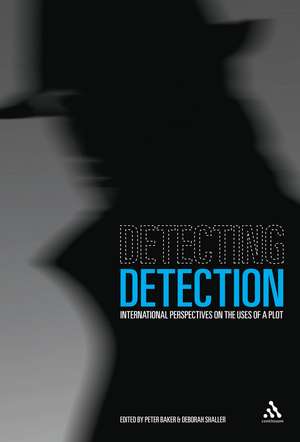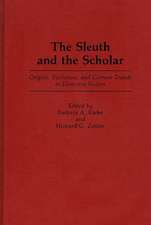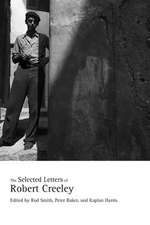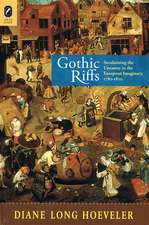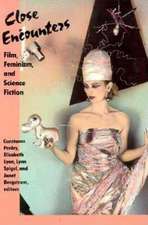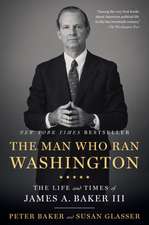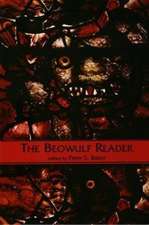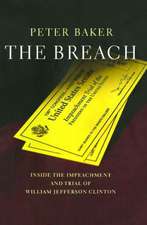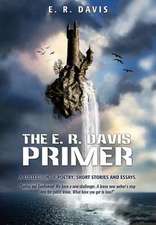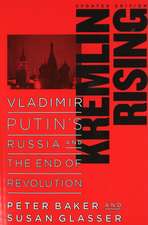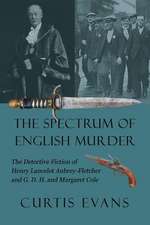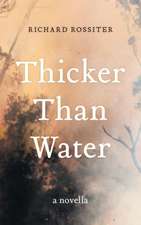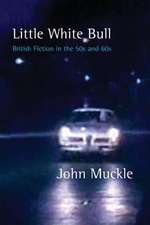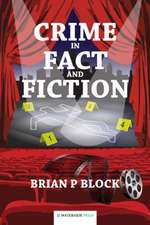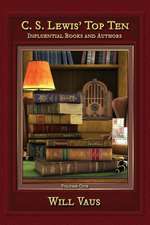Detecting Detection: International Perspectives on the Uses of a Plot
Editat de Professor Peter Baker, Professor Deborah Shalleren Limba Engleză Paperback – 15 aug 2012
Detecting Detection gathers writing from the UK, North and South America, Europe, and Asia to draw together instances of the detective plot in contemporary fiction. It is unique not only in addressing the theme-a recurring one in modern literature-but in tracking the interest in detectives and detection across international borders.
| Toate formatele și edițiile | Preț | Express |
|---|---|---|
| Paperback (1) | 256.12 lei 6-8 săpt. | |
| Bloomsbury Publishing – 15 aug 2012 | 256.12 lei 6-8 săpt. | |
| Hardback (1) | 830.36 lei 6-8 săpt. | |
| Bloomsbury Publishing – 15 aug 2012 | 830.36 lei 6-8 săpt. |
Preț: 256.12 lei
Preț vechi: 295.12 lei
-13% Nou
Puncte Express: 384
Preț estimativ în valută:
49.01€ • 50.84$ • 40.87£
49.01€ • 50.84$ • 40.87£
Carte tipărită la comandă
Livrare economică 27 martie-10 aprilie
Preluare comenzi: 021 569.72.76
Specificații
ISBN-13: 9781441100788
ISBN-10: 1441100784
Pagini: 208
Dimensiuni: 150 x 226 x 13 mm
Greutate: 0.3 kg
Ediția:New.
Editura: Bloomsbury Publishing
Colecția Continuum
Locul publicării:New York, United States
ISBN-10: 1441100784
Pagini: 208
Dimensiuni: 150 x 226 x 13 mm
Greutate: 0.3 kg
Ediția:New.
Editura: Bloomsbury Publishing
Colecția Continuum
Locul publicării:New York, United States
Caracteristici
Demonstrates the uses of the detective plot in an international, comparative context.
Notă biografică
Peter Baker is Professor of English and Cultural Studies at Towson University, Baltimore, USA. He is the author of three books, including Deconstruction and the Ethical Turn (University Press of Florida, 1995). He has also edited three volumes, including Onward: Contemporary Poetry and Poetics (Peter Lang, 1996). With co-editors Rod Smith and Kaplan Harris, he is completing an edition of The Selected Letters of Robert Creeley, forthcoming in Fall 2011 with the University of California Press.
Deborah Shaller is Professor in the English Department at Towson University, Baltimore, USA. She directs the university's writing tutorial service, and lectures on popular literature, writing, and educational theory.
Deborah Shaller is Professor in the English Department at Towson University, Baltimore, USA. She directs the university's writing tutorial service, and lectures on popular literature, writing, and educational theory.
Cuprins
Contributors
Editors' Introduction
1. The Detection Plot as a Means of Testimony in Ann-Marie MacDonald's The Way the Crow Flies
Heta Pyrhönen
2. Is The Savage Detectives A Detective Story?
Peter Baker
3. Detectivism as a Means of Resistance in Juan Marse's El embrujo de Shanghai
Anna-Maria Medina
4. Two Men Walk into a Bar
Michelle Robinson
5. Espionage and the War on Secrecy and Terror in Graham Greene and Beyond
Sofia Ahlberg
6. The Stories We All Tell: The Function of Language and Knowledge in Julia Kristeva's Novel Possessions
Rossitsa Terzieva-Artemis
7. Zen Keytsch: Mystery Handymen with Dragon Tattoos
Sheng-Mai Ma
8. Knowing the Unknowable: Detecting Metaphysics and Religion in Crime Fiction
Kim Toft Hansen
9. African Initiation Narratives and the Modern Detective Novel
Amadou Koné
Editors' Introduction
1. The Detection Plot as a Means of Testimony in Ann-Marie MacDonald's The Way the Crow Flies
Heta Pyrhönen
2. Is The Savage Detectives A Detective Story?
Peter Baker
3. Detectivism as a Means of Resistance in Juan Marse's El embrujo de Shanghai
Anna-Maria Medina
4. Two Men Walk into a Bar
Michelle Robinson
5. Espionage and the War on Secrecy and Terror in Graham Greene and Beyond
Sofia Ahlberg
6. The Stories We All Tell: The Function of Language and Knowledge in Julia Kristeva's Novel Possessions
Rossitsa Terzieva-Artemis
7. Zen Keytsch: Mystery Handymen with Dragon Tattoos
Sheng-Mai Ma
8. Knowing the Unknowable: Detecting Metaphysics and Religion in Crime Fiction
Kim Toft Hansen
9. African Initiation Narratives and the Modern Detective Novel
Amadou Koné
Recenzii
"Having long ago outgrown the confines of the English country house murder mystery, the detective has travelled widely, adapting himself to other cultures and genres. Contemporary critics have become increasingly fascinated by this versatility and by the diversity of detection itself. The nine excellent essays in Detecting Detection astutely consider the reasons for the detection plot's persistence and proliferation, exploring in detail the ways in which it has been transformed across cultures and incorporated in a variety of other narrative forms. They illuminate its ability to raise difficult questions about moral and ethical choices, guilt, political repression, personal and national trauma, witnessing, judgment and belief - and about 'the elements of the global mystery of the functioning of the world and society'." -- Lee Horsley, Reader in Literature and Culture, Lancaster University, UK
